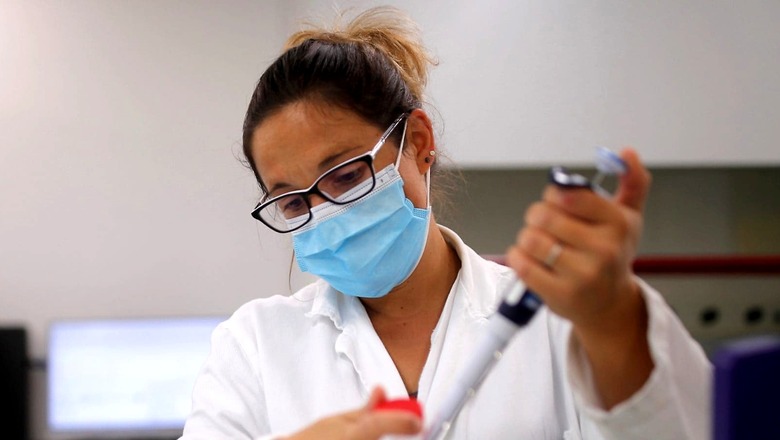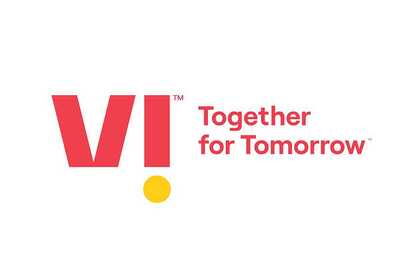
views
Merck’s Molnupiravir, Zydus’ antibody cocktail and Glenmark’s nasal spray are among more than 20 new drugs in different stages of drug trials or approvals in India to treat Covid-19.
While the market for these drugs may not be huge at present due to a drop in Covid-19 cases and extended timelines, experts believe that these drugs will help control future waves and protect people with weak immunity.
According to health experts, the pipeline of drugs will play a crucial role in India’s fight against the novel coronavirus. They argue that Covid-19 vaccines would only provide immunity against severe disease or death. However, one can always catch an infection and could develop complications or long term side-effects from the disease.
EXPLAINED: A Shot That Doesn’t Draw Blood. What Makes 3-Dose ZyCoV-D A Vaccine Of Many Firsts
Additionally, some people may not be able to generate an immune response despite taking vaccine shots. Others vulnerable groups such as the elderly, immunocompromised patients or those for whom vaccine jabs are not recommended are also at risk. Experts believe that covering 100% of the population with vaccines is highly improbable and having a treatment for coronavirus is “very important”.
For instance, while smallpox was eradicated decades ago, the drug against it, Tecorivimat, was approved by the American regulator in 2020 despite no cases of smallpox being reported for many years.
Be Ready With Drugs This Time: Experts
“These first generation vaccines do not provide sterilising immunity as efficiently. They prevent severe infections. It means that some of those who are vaccinated may still get ill with mild disease, leading to other complications or causing long Covid,” said Dr Raman Gangakhedkar, former scientist at ICMR, adding that we are still learning more about long-term side-effects of Covid.
“Moreover, vaccine non-response is also seen in some people. Additionally, 100% vaccine coverage is a utopian goal. Therefore, there will always be some who are vulnerable to infection,” said Dr Gangakhedkar, an epidemiologist, who was the face of the Indian Council of Medical Research (ICMR) during government briefings on Covid-19 last year.
The top scientist also urged preparedness for a scenario wherein a mutant strain immune to vaccine starts evolving and spreading.
“Imagine if a stronger mutant escapes vaccine-induced immune response and starts spreading. One will need effective antivirals to reduce mortality and also associated morbidity. It is better to be ready with an approved drug than work on it after such a mutant strikes,” he said.
Another health expert, Dr Chandrakant Lahariya, physician and epidemiologist, echoed the observations. He said that while there has been immense investment and success in Covid-19 vaccine research and development, promising investigational therapies have not met with similar success.
“The level of investment and interest in research and development of Covid-19 therapies has been lower than it should have been. One of the biggest risks in clinical trials on Covid-19 therapies is that once cases come down, many companies may not see a big market for further research and trials. That would be a mistake,” he said.
Experts believe that the virus SARS CoV2 would stay with humanity and would keep causing Covid-19 at a relatively low rate.
“As the world needs Covid-19 vaccines, the world also needs proven and effective Covid-19 therapies,” Lahariya said.
List of Drugs in the Pipeline
US pharma giant Merck and Ridgeback Biotherapeutics’ oral antiviral treatment molnupiravir, which has shown to reduce the risk of hospitalisation or death by around 50%, — has been conducting trials in India through its partner companies Cipla, Dr Reddy’s Laboratories, Sun Pharmaceutical Industries and Torrent Pharmaceuticals.
Ahmedabad-based Zydus Cadila is the only Indian company that claims to have developed a cocktail treatment neutralising monoclonal antibodies. A similar drug manufactured by Swiss drugmaker Roche was administered to former US President Donald Trump when he had contracted Covid-19. The drug is under phase I/III trials in India.
Pfizer’s Ritonavir, an experimental antiviral drug, is pegged to stop the virus early, before it has the chance to replicate extensively. It could prove to be potential therapy in preventing symptomatic disease in those who have been exposed and inhibiting the onset of infection in others. The company’s other experimental oral antiviral, PF-07321332, has been given a go-ahead for phase II and III trials.
Nitric Oxide Nasal Spray for Covid-19 by Mumbai-based Glenmark has been approved to undertake large-stage trials in India. The study on the spray in the United Kingdom has suggested that it is highly effective in reducing viral load in Covid-19 patients and reduces onward transmission.
NIPER’s Life Viro Treat, a nebuliser-based therapy for respiratory viral infection, is also being tested against Covid-19. The National Institute of Pharmaceutical Education and Research (NIPER) is a government-run institute which has partnered with Supreme Industries to conduct trials.
Silmitasertib, a drug that acts on the protein kinase CK2 pathway and is said to have high clinical potential to treat Covid-19, has been presented to gain approval for trials by PAT Pharma. Its developer has announced encouraging results. The CK2-inhibitor works by potentially hindering the active viral replication in the infected cells to prevent the infection from spreading. The drug may also lower the overactive inflammatory response of the body to Covid-19.
India’s apex scientific research body, CSIR, has been conducting Phase III trials of Umifenovir, a drug mainly used for treatment of influenza in China and Russia.
Several other drugs, including CBCC Global Research’s Niclosamide, Gufic Biosciences’ Thymosin α-1 injection, Sun Pharma’s Purified aqueous extract of Cocculus hirsutus, and Syngene’s Imatinib Mesylate have either been approved for trials or are in process of providing more details to seek approval.
Seeking Govt Support
According to health experts, governments should actively support clinical trials of Covid-19 therapies.
“In fact, the government should form a similar type of government and industry collaboration as was done for vaccines,” Lahariya said. “In any case, as the number of Covid-19 cases fall, it would take longer to complete clinical trials (as the number of volunteers for these trials could be reduced). That is another reason these trials need to be supported.”
Dr Gangakhedkar echoed a similar concern. “The trials will now run longer which means companies will require longer time to complete trials, and also spend more. But they must continue. I feel that the government could support pharmaceutical companies in keeping the trials on. It would be a useful investment.”
Read all the Latest News , Breaking News and IPL 2022 Live Updates here.




















Comments
0 comment